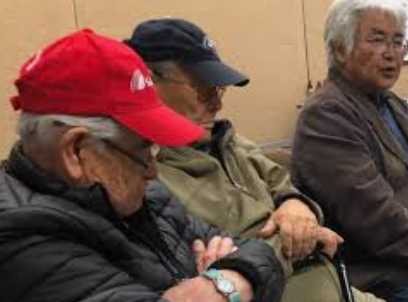
- Details
- By Native News Online Staff
U.S. Senators Lisa Murkowski (R-AK) applauded the Senate passage of the Older Americans Act Reauthorization Act of 2024, which included provisions of her bill, the Enhancing Native Elders’ Longevity, Dignity, Empowerment, and Respect (Native ELDER) Act. Co-sponsored by Senator Tina Smith (D-MN, the Native ELDER Act will improve federal programs and services for Alaska Native, American Indian, and Native Hawaiian Elders. The legislation now heads to the U.S. House of Representatives for consideration.
The bill reauthorizes the Older Americans Act (OAA), originally passed in 1965. OAA programs allow seniors to age in place by encouraging healthy living, independence, and community engagement among seniors served by these programs. These include supportive services, nutrition services, family caregiver support, community service employment, and services to prevent abuse, neglect, and exploitation of older individuals.
“The Older Americans Act was created to provide support for Americans as they age,” said Senator Murkowski. “This legislation works to ensure that aging Americans, individuals with disabilities, and their caregivers have access to resources that encourage healthy living, independence, and community engagement, bolstering long-term quality of life by providing increased resources and funding.”
“I’ve heard directly from stakeholders who made clear what modifications were needed to help bridge significant lapses when it comes to meeting the physical, social, and emotional healthcare needs of Native Elders, in Alaska and across the nation. We must ensure that Elders have the support they need to age in the communities they call home, surrounded by the people they know and love,” Senator Murkowski continued. “I’m proud that the provisions from our Native ELDER Act have been included in the Senate passage of the OAA reauthorization of 2024. This takes us one step closer to increasing culturally relevant services, improving at-home care options, and ensuring Elders – no matter their geographical location – have the care and support they deserve.”
“The OAA is the key legislative framework for developing, coordinating, and delivering home and community-based services to allow American Indian and Alaska Native elders to maintain their independence and dignity,” Billie Tohee, Executive Director of the National Indian Council on Aging. “NICOA appreciates Senator Murkowski's leadership in introducing legislation that emphasizes Tribal priorities and increases coordination across agencies that serve our elders.”
“The Reauthorization of the Older Americans Act (OAA) is an important contribution to our Native elder and aging population,” said Chairman William Smith, National Indian Health Board. “The Native ELDER Act will make changes to Title VI programs which reflect Tribal priorities including the establishment of an Older Americans Tribal Advisory Committee and expanded technical assistance authority to help tribes keep their elders at home and age in place. The National Indian Health Board is proud to support the Native ELDER Act.”
Create your own user feedback survey
More Stories Like This
Native News Weekly (August 25, 2024): D.C. BriefsUS Presidents in Their Own Words Concerning American Indians
Federal Judge Orders ICE to Halt Use of Pepper Spray, Arrests of Peaceful Protesters in Twin Cities
Tunica-Biloxi Cultural Leader John D. Barbry Walks On
Next on Native Bidaské: Federal ICE Activity in Minneapolis: Ruth Buffalo’s Perspective
Help us defend tribal sovereignty.
At Native News Online, our mission is rooted in telling the stories that strengthen sovereignty and uplift Indigenous voices — not just at year’s end, but every single day.
Because of your generosity last year, we were able to keep our reporters on the ground in tribal communities, at national gatherings and in the halls of Congress — covering the issues that matter most to Indian Country: sovereignty, culture, education, health and economic opportunity.
That support sustained us through a tough year in 2025. Now, as we look to the year ahead, we need your help right now to ensure warrior journalism remains strong — reporting that defends tribal sovereignty, amplifies Native truth, and holds power accountable.
 The stakes couldn't be higher. Your support keeps Native voices heard, Native stories told and Native sovereignty defended.
The stakes couldn't be higher. Your support keeps Native voices heard, Native stories told and Native sovereignty defended.
Stand with Warrior Journalism today.
Levi Rickert (Potawatomi), Editor & Publisher

